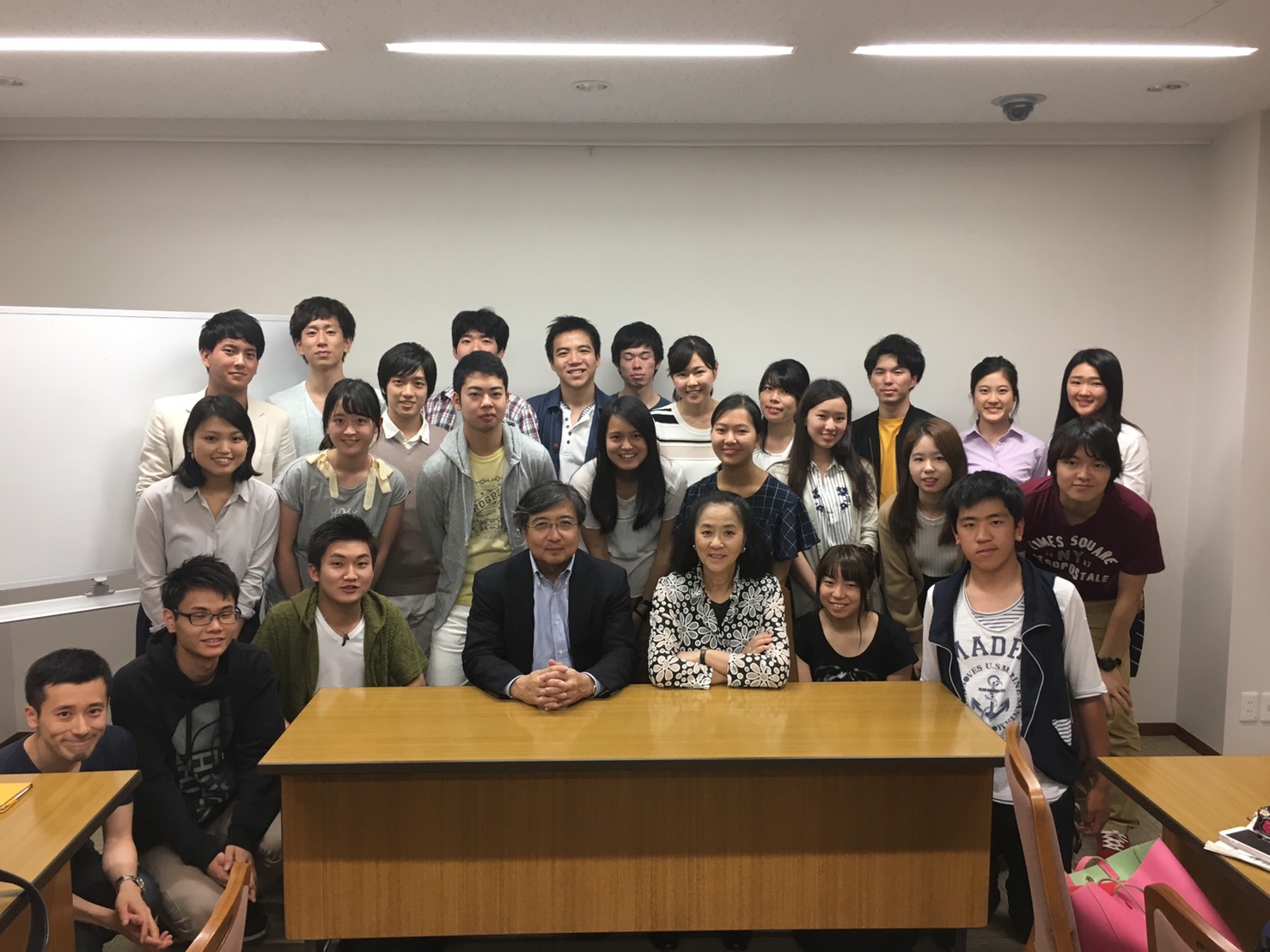- HOME
- Activities
- Forum List
- Forum Details
May.31.2017 “To maintain wealth in aging, declining birth rates and population decline What to be able to do by youth”
Mr. Toshiro Nishizawa, Project Professor at the Graduate School of Public Policy (GraSPP) of the University of Tokyo

Mr. Toshiro Nishizawa : After graduating from Tokyo University of Foreign Studies and the University of Tokyo, Mr. Nishizawa entered Japan Bank for International Cooperation. After that, he also served Ministry of Finance, Ministry of Foreign Affairs of Japan, International Monetary Fund, Japan Finance Corporation, Japan Center of International Finance, International Bank for Reconstruction and Development. And He became a Project Professor at the Graduate School of Public Policy(GraSPP) of the University of Tokyo from 2015.
In this forum, Mr. Nishizawa put much focus on thinking these problems as “our own” problems. However, this forum’s theme is too big and vague for us to discuss directly. Therefore, he started his lecture from two perspectives. The first one is how population decline have influence on GDP growth. The second one is how Japanese government should deal with this problem.
He started the lecture from the former perspective. If Japan`s population decrease because of aging society and declining birth rates, the productivity of Japan will keep descending and we will not be able to maintain the current level of GDP growth rate. It is always true that someone should bear the cost, which is emerged due to this situation. Now in Japan, Mr. Nishizawa pointed out that they were the future generations. He showed the generation gap of pension and traditional employment style as the examples of problems. He also presented some public documents that showed current situation of declining regional power and quoted the word “capacity of connect,” which meant the importance of cooperation of various actors, and “capacity of opening”, which was the mindset to keep themselves open to others.
Secondly, Mr. Nishizawa mentioned how Japanese government had dealt with this situation in terms of financial and monetary policy. There were two goals. The one is sustaining the level of the national income, and the other one is contributing to the financial systems of Asia.
Looking at the current distribution of national income in Japan, households and corporate departments are in surplus, while government and overseas departments are in deficit. Moreover, we realize big changes in terms of the breakdown of the current account balance. Although the current balance has been in surplus, the trade balance is in deficit, and the primary income balance is growing steadily instead. This shows that the support of national income is taking over from the trade surplus to the return of investment abroad. In thinking overseas investment, attractive things in Japan are high-quality infrastructure. For that reason, credits of overseas banks have been active in Japan. Based on this background, Mr. Nishizawa said that if we looked at the recent policy of Japan, we could see the characteristic movements in the Financial Services Agency. A long time ago, few people thought this kinds of attitude to pay attention to the mutual relationship between banks and their customers.
Based on these contents above, we discussed the theme " Should Japan abolish retirement system?" In the discussion, many group focused on maintaining economic wealth. And the opinions of each group were mainly that since Japan's domestic labor force will decline in the future, the retirement system should be ensured to secure the labor force and that we should abolish the retirement system and maintain labor force by accepting workers from abroad.
Several opinions were showed by the group proposing continuation of the retirement system. Someone mentioned that we could pass on the technology transfer to young people by arranging workers with abundant experience optimally. Some students were anxious about accepting immigrants in view of the difficulties in handling migrant workers.
On the other hand, students who supported abolishing the retirement system claimed that it was beneficial for Japan to use more foreign workers because it would make Japanese working environment more diverse, and that under competent workers could not perform well under Japanese traditional employment system. Various opinions were also observed, such as raising the age of retirement instead of abolishing it.
After finishing the discussion, we got a message to confirm the spirit of the lecture from Ms. Packard. Although we tend to recognize that problems in everyday life are various and separated, the fundamentals of those situations are widely connected across national borders. In order to understand the situation deeply, it would be necessary to act actively with interest, taking advantage of being students. I comprehended the importance of maintaining the attitude of not only staying at a comfortable place but taking action positively.
(Soichiro Sasaki)


